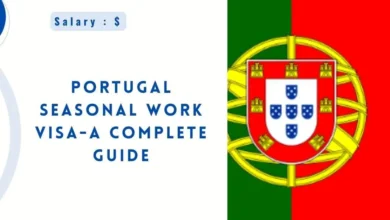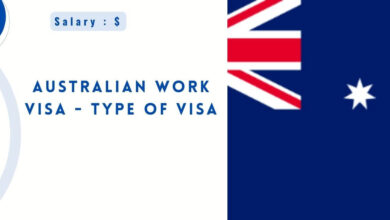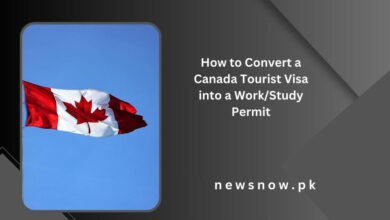Canada Visitor Visa Updates – 2025
In 2025, the procedure of obtaining a Canadian visa has become increasingly challenging. It is imperative to comprehend the most recent updates to Canada’s visitor and tourist visa regulations, regardless of whether you are planning a brief vacation or exploring the country’s tourist attractions.
The objective of this blog is to provide you with the most current information feasible regarding visa processing, as well as any delays or changes that may affect your travel arrangements.
Introduction:
In 2025, the Canadian visa landscape will become increasingly intricate and significant for potential visitors and tourists. Your travel arrangements may be impacted by recent statements and policy changes made by the Canadian government.
This blog will provide a comprehensive overview of the most recent developments in Canada’s visitor and visiting visa policies, enabling you to remain informed and make the requisite preparations.
Recent Policy Changes:
Immigration officials in Canada recently disclosed substantial reforms that will be implemented on September 28, 2025. To be more specific, the government has elected to terminate the low-wage Labor Market Impact Assessment (LMIA) program in industries with an employment rate exceeding 6%.
This policy transition has now impacted industries that were previously exempt from this restriction, including healthcare, construction, and food processing. Consequently, it is now nearly impossible to obtain a work permit in these regions under the low-wage LMIA stream.
The following limitations are crucial for individuals who are considering transitioning from a visitor visa to a work permit in order to access Canada. The Canadian government has explicitly stated that the likelihood of converting a visitor visa into a work permit under the low-wage stream will be nearly nonexistent as of September.
This is particularly important for individuals from countries such as India who plan to file for a work permit upon their arrival.
Implications for Visitors and Work Permit Holders:
Considering the substantial modifications made to the LMIA system, prospective guests ought to thoroughly examine their itinerary. Now that the low-wage LMIA stream is practically closed, applicants who were hoping to get a job through this path would want to look into other options. For individuals intending to file for work visas upon arrival, there is now a far lower chance of approval.
In addition, a 90-day trial period has been instituted by the Canadian government to assess the need for foreign labor in particular industries. Authorities will evaluate the true need for foreign workers during this time, which may result in additional limitations or demand-based modifications. This trial may have an impact on future visa regulations and foreign worker employment prospects.
Refugee Claims and Asylum Seekers:
Additionally, there has been a substantial increase in asylum petitions, in addition to the modifications that have affected work permits. The proportion of individuals in Canada who are requesting asylum has increased significantly, particularly among those from countries such as Nigeria and India, according to a recent survey.
This increase in the number of claims is a clear indication of the increasing demand for refugee protection and may soon lead to a more rigorous assessment of asylum petitions.
If you are contemplating applying for asylum in Canada, it is imperative that you possess all necessary documentation and are capable of effectively communicating your stance. Ensure that your application is comprehensive and that you are cognizant of the requirements in order to prevent potential delays or rejections.
Check Also: LMIA Approved Jobs in Canada For Foreigners – Apply Now
Benefits of Canada Visitor Visa:
- Online Application System: The online application procedure has been simplified to facilitate the submission of documents and the monitoring of applications by applicants.
- Processing Times: Although processing times have fluctuated, the government is currently making efforts to mitigate delays. It is recommended that you consult the official website to obtain the most recent processing times.
- Biometric Requirement: Applicants from specific countries may still be required to submit biometric data. In order to improve security and identity verification, this requirement has been implemented.
- Travel Restrictions: Presently, there are no specific COVID-19 travel restrictions; however, it is prudent to verify any modifications or updates to health guidelines prior to embarking on a journey.
- Financial Evidence: In order to demonstrate their ability to sustain themselves during their stay, applicants may be required to submit more comprehensive financial documentation.
- Family Sponsorship: Changes have been suggested to simplify the process of family sponsorship, which could potentially impact individuals who wish to visit their family in Canada.
Express Entry and Permanent Residency:
Even though the work permit landscape is undergoing substantial change, Express Entry remains in position for permanent residency. Recent drawings from the Express Entry pool have resulted in invitations to register for 3,300 applicants with a threshold score of 57. This demonstrates that, despite the increased stringency of work permit requirements, there are still viable and accessible routes to permanent residence for eligible applicants.
If your long-term goal is to reside in Canada, it may be more prudent to concentrate on the Express Entry system rather than relying solely on impermanent work permits. The Express Entry system offers a pathway to permanent residency through a variety of programs, including the Federal Skilled Worker Program, Canadian Experience Class, and Federal Skilled Trades Program.
Alternatives and Recommendations
If you are one of the individuals affected by the new developments, it is imperative that you reevaluate your options, especially if you are considering relocating to Canada. One viable alternative is to acquire a study permit. To acquire a Post-Graduation Work Permit, one must enroll in a Canadian educational institution. This permit allows you to work in Canada and potentially progress toward permanent residency.
If international students successfully conclude their studies at accredited Canadian universities, they may be eligible for a post-graduate work visa. This could potentially facilitate a more straightforward application procedure for a work visa and, in the future, permanent residency. In addition to facilitating the acquisition of legal employment status, this approach offers the potential for a more successful integration into Canadian society.
Conclusion
The modifications to Canada’s visitor and tourist visa requirements are indicative of broader changes in the labor market and immigration laws. The closure of the low-wage LMIA stream and the increased scrutiny of refugee claims must be communicated to potential visitors and employees. Also, they must formulate suitable strategies.
If you are contemplating immigrating to Canada, researching educational opportunities and gaining knowledge about the Express Entry process may provide more dependable pathways to your immigration goals. In order to effectively manage these developments, it is crucial to remain informed about the most recent news and to consult with immigration specialists as necessary.
Thorough preparation and awareness of the current situation can enhance the likelihood of a successful application and the ability to make informed decisions.
Stay informed about the most recent developments in the field of work by following us on Newsnowgh.com.ermits, visa application processes, paths to permanent residency, and visa-sponsored employment.
Frequently Asked Questions:
Is Canada giving a visitor visa now?
Unless you are from a visa-exempt country, you will need a visitor visa to enter.
Is Canada giving a visitor visa now?
Unless you are from a visa-exempt country, you will need a visitor visa to enter Canada, whether you are coming as a student, temporary worker, or simply to visit.
How much of a bank balance is required for a Canadian tourist visa?
Generally, a single applicant should have a minimum balance of CAD 10,000, or approximately INR 630,000. This amount should cover travel expenses, accommodation, living costs, and any planned activities during the visit.




